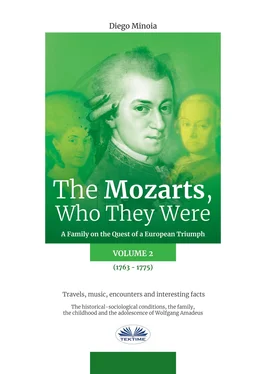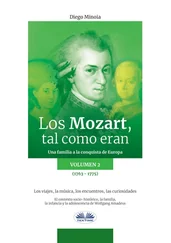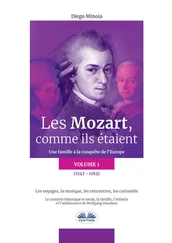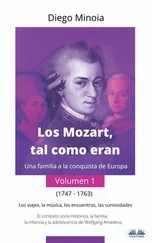A solution to every problem: the Bourdaloue was invented, a portable chamber pot equipped with a handle and formed according to the female shape, which was placed under the skirts by the maid and which allowed the grand lady, thanks to the fact that it had a strategically placed opening, to free themselves in public while respecting the concept of decency considered acceptable at the time.
However, it seems that at the beginning of the 1700s only three aristocrats out of a hundred wore underpants, either for convenience or because they were still considered a sinful garment by the Church (in the previous century they were worn and flaunted above all by prostitutes, as in Venice, where they were called "braghesse" and were imposed as an obligation for girls who were "working girls"). In public, it is said.
Of course, bourdaloue was used without problems, in the 1700s, on every occasion: during walks, during carriage rides, in the middle of a dance and, yes, even in church.
The term bourdaloue derives from the surname of Louis Bourdaloue (1632-1704), a very famous preacher who, thanks to his extraordinary oratory art, was called to Versailles to give his sermons in the Royal Chapel, in front of the King and the courtiers.
The sermons, however, were very long and, in order not to miss a single word (and not to leave their place, which represented a precise hierarchical order within the courtiers), the ladies resorted to bourdaloue, which allowed them to solve the problems of incontinence. without abandoning their place in church.
Leopold then communicates to Hagenauer the hope of a collection of 75 Luigi d'oro for the first Parisian concert of the young Mozarts, scheduled for March 10 at the Teatro del Signor Felix, which actually yielded 112. During their stay in Paris the Mozarts have way to also attend "shows" that were very rare in Salzburg, while in Paris were almost daily event: the hangings of criminals in Place de Grève (the current Place de Hotel de Ville, the Town Hall).
It is not known whether for having witnessed it or by hearsay, the story of the hanging of three servants (a cook, a coachman and a maid) who in the service of a rich widow to whom annuity payments were sent home every month, had stolen the astonishing sum of 30,000 Louis of gold. Such facts did not cause a sensation and it could happen that servants were hanged for even minimal thefts, even for only 15 sous. Leopold, a well-meaning bourgeois, thought it was right to make people feel safe.
On the other hand, it seems that it was not considered a theft to "skim money" at the expense of the masters: Leopold says that this is to be considered profit and not theft. Then as today, if the law was very hard on the poor, it was not so hard on the rich and powerful. Thus a notary, taking advantage of the sums of money entrusted to him and no longer able to repay them, went bankrupt and disappeared from circulation. They, therefore, had to be content with hanging his portrait.
In the last letter sent to Hagenauer from Paris on 1 April 1764, Leopold Mozart refers to an infrequent episode: an eclipse of the sun. For days the Parisian glassmakers had collected all the glass fragments left over from the work to prepare for the event, and had colored them blue or black for sale to those who wanted to observe the eclipse without having any damage to their eyesight. Those who were not satisfied with observing the eclipse from the road could go to the Observatory built by Louis XIV in 1667 and entrusted to the Italian astronomer and mathematician Giovanni Cassini (later naturalized French, as had happened, again under Louis XIV with the Florentine musician Giovan Battista Lulli who became Jean-Baptiste Lully). Unfortunately for the Parisians who had bought the colored glass, a heavy rain fell that day and the vision of the eclipse faded.
In compensation, however, the anticipation of the event had unleashed the superstition of those (and there were many since the churches that morning were stormed) who believed that the eclipse would poison the air or even cause plagues. Having scraped together a lot of money from the performances of the boys, Leopold writes to Hagenauer (who, remember, was his lender / administrator / banker) that he wanted to deposit 200 Luigi d'oro, at the Parisian branch of the Tourton and Baur bank, waiting to have them transferred to Salzburg. He also looks forward to collecting the proceeds of the next concert, scheduled for 9 April, with which he hopes to replenish the reserves with at least another 50 or 60 Luigi d'oro, without excluding the hope of obtaining more.
But how did the organization of public concerts work at that time? For private individuals, kings and aristocrats, they presented themselves, obtained an invitation, the performance was carried out and then waited (even for some time) for a gift in money or precious objects (if all went well). Public concerts with payment of an entrance ticket were not yet widespread at the time when the Mozarts were in Paris. The main organization dedicated to the proposal of musical concerts was the "Concert spirituel" which, since 1725, had the royal permission to have music performed in competition with the Parisian theatrical institutions. In particular, the concerts were organized during the period of Lent, when any profane entertainment was forbidden, and the programs included choral and instrumental music with interventions by the main virtuosos. These concerts were mainly frequented by the middle class and the lower aristocracy (the important aristocrats, as we have seen, organized them at home).
For paid public concerts, the organization provided for the presale of tickets through friends and acquaintances introduced in the Parisian salons who could circulate the news of the concert and sell the tickets to interested parties. Even the shops of the music publishers could be part of the booking and ticket sales points (in Vienna in the following years, this was the case for Wolfgang and also later, for Beethoven and others who became entrepreneurs themselves). The friends, therefore, contacted potential interested parties eight days before the concert and sold them concert tickets which, in this specific case, cost 1/4 of Luigi d'oro. If the price was the same as the one charged for the previous concert, which had collected 112 Luigi d'oro, then we can estimate the presence of 448 people at the Parisian exhibition on 10 March 1764!
A little selling trick, Leopold himself reveals, consisted in giving most of the tickets, in packets of 12 or 24, to ladies who, as such, would hardly have received any refusal to purchase from the courteous men who may have offered them. To prevent fake tickets from being printed Leopold Mozart had his seal put on the cards and the content was very concise: At the Teatro del Signor Felix, rue and Porte Saint Honoré, this Monday 9 April at 6 pm. This Mr. Felix's theater was actually a small private theater built inside his palace, where friends and noble guests delighted in acting in first person plays.
The two concerts given by the Mozarts were able to be organized thanks to the availability of the Theater, obtained thanks to the support of Madame Clermont, but above all thanks to a special authorization obtained from Mr. de Sartine, Lieutenant General of Police, on multiple interventions by Mozart supporters: the Duke of Chartres, the Duke of Duras, the Count of Tessé and many other ladies. Why was authorization needed to organize concerts? The reason depends on the fact that the King had granted some Parisian institutions "privileges" which provided for the exclusivity in the organization of certain shows: L'Opera (L'Académie Royale de Musique) had the exclusive right to organize theatrical performances, the Concerts spirituels enjoyed the privilege of organizing concerts, the Comédie francaise and the Comédie italienne were the only ones authorized to organize theatrical performances. What was the picturesque world of theater like in Paris?
Читать дальше












